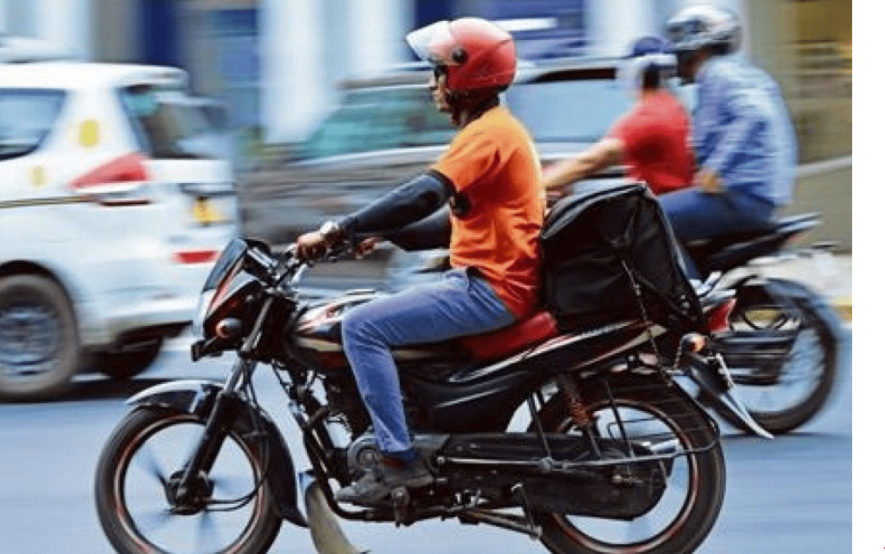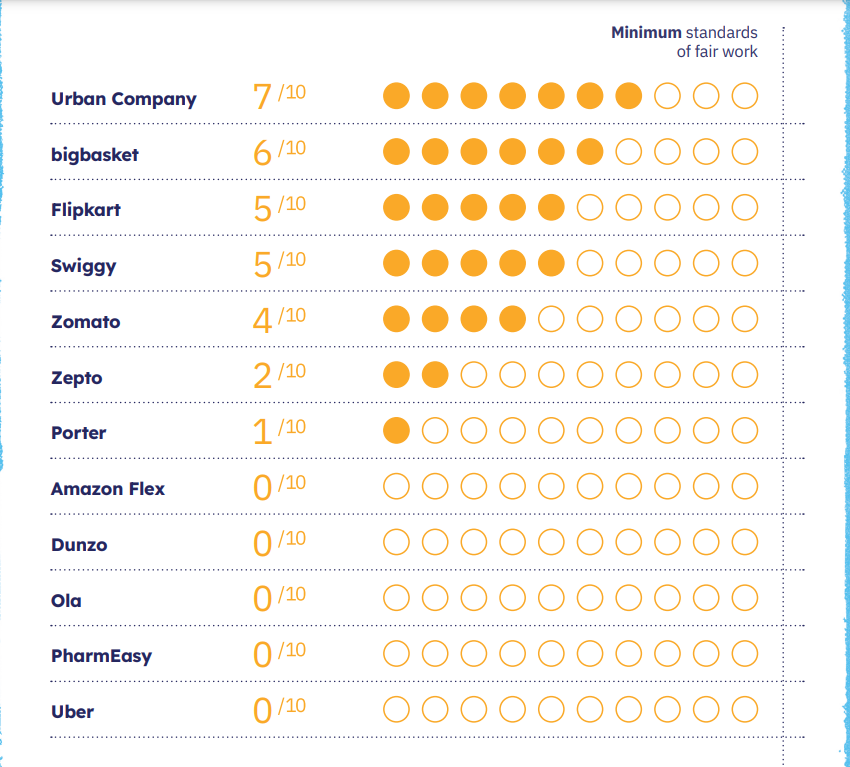Report Highlights Poor Working Conditions for Gig Workers; Uber, Ola, Amazon Score Zero

Flie Image
Delhi: A latest report by Research firm Fairwork India made a shocking revelation on Tuesday that major platforms like Ola, Uber, Dunzo, PharmEasy and Amazon Flex scored zero in the assessment of fair working conditions for gig workers.
The research project, which is led by the Centre for IT and Public Policy in collaboration with partners at the University of Oxford, said the said firms did not provide fair pay, fair contracts, fair management, fair representation or fair working conditions to their gig workers. It underlined how the much-hyped flexibility in platform work plays out in practice, and the workers are not the ones who benefit from it.
The report said that other than Bigbasket, Flipkart, and Urban Company, no other platform publicly committed or provided sufficient evidence to ensure workers’ earnings that commensurate with the hourly local minimum wage after work-related costs. Another key finding was that while workers have engaged in various forms of collective action to voice their concerns in the platform economy, the platforms have been unwilling to acknowledge or bargain with any such collective body of workers.
“Even with workers and worker groups repeatedly emphasising the importance of a stable income for platform workers, platforms have been reluctant to publicly commit to, and operationalise, a minimum wage policy,” the report said.
The firm studied 12 firms and granted Urban Company a score of seven out of 10, which is the highest, six to online grocer BigBasket, and five each to Flipkart and Swiggy, four to Zomato, and two to grocery delivery platform Zepto and one to Tiger Global-backed delivery firm Porter.
“This year, only Bigbasket, Flipkart and Urban Company were awarded the first point (on providing minimum wage) because of the public commitments they have made to paying workers at least the hourly local minimum wage after factoring in work-related costs,” Fairwork India said in its fourth annual report.
“Bigbasket and Urban Company have operationalised this by committing to reimburse the difference between worker’s earnings per hour and the hourly local minimum wage after costs. Flipkart and Urban Company have committed to basing their pricing structure for workers on the hourly local minimum wage after costs. Flipkart has also undertaken steps to hold its third-party service providers to the same commitment,” the report added. However, it pointed out that none of the platforms scored on the second point of fair pay, which is based on the workers earning a living wage, as opposed to the minimum wage.
Fairwork India Scores 2022

The Fairwork report came down heavy on a NITI Aayog report on the gig and platform economy. It criticised the NITI Aayog report by saying that “any claims that workers enjoy increased earning potential on platforms is neither supported by evidence, nor does the report contain an estimate of the share of platforms’ earnings paid to workers
Gig economy workers, who are making up an increasing portion of the Indian workforce, are not extended crucial employee benefits such as health insurance, financial security in case of health emergencies etc. Firms using the service of gig workers have been accused of exploiting them and limiting corporate liabilities. However, the State is yet to provide any safety against such worker exploitation.
“Even as instances of abuse and discrimination against platform workers have surfaced this year, the legal landscape of the platform economy in India remains largely unchanged. Members of Parliament have directed attention to the need for reform, yet the Code on Social Security and the Motor Vehicle Aggregator guidelines, 2020, both of which regulate the conditions of platform workers, await enforcement,” the Fairwork report said.
It further added that the Digital Personal Data Protection Bill, 2022, which is likely to have repercussions for the data collected from platform workers, has not yet been passed by the Parliament. A Public Interest Litigation (PIL) filed before the Hon‘ble Supreme Court by the Indian Federation of App-based Transport workers (IFAT) to reclassify platform workers as unorganised workers or employees, also awaits a decision.
Get the latest reports & analysis with people's perspective on Protests, movements & deep analytical videos, discussions of the current affairs in your Telegram app. Subscribe to NewsClick's Telegram channel & get Real-Time updates on stories, as they get published on our website.






















